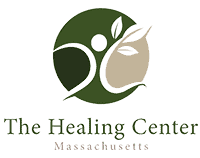When someone is struggling with both a mental health disorder and a substance use disorder, it’s known as a dual diagnosis—and it requires specialized, integrated treatment. At The Healing Center's dual diagnosis treatment in Stoughton, MA, we understand how closely connected mental health and addiction truly are. Conditions like depression, anxiety, PTSD, or bipolar disorder can fuel substance use, and vice versa, creating a cycle that’s difficult to break without the right support. That’s why our dual diagnosis programs are designed to treat the whole person, not just one part of the problem.
Our Stoughton dual diagnosis facility offers comprehensive, evidence-based care in a supportive and compassionate environment. We focus on addressing both the underlying mental health condition and the addiction at the same time, using a combination of medication management, individual therapy, group counseling, and holistic therapies. By uncovering the root causes of both disorders and providing tools for long-term stability, The Healing Center empowers individuals to heal fully and build a balanced, fulfilling life in recovery.
What Does Dual Diagnosis Mean?
Dual diagnosis refers to the presence of both a mental health disorder and a substance use disorder (SUD) in the same individual. Also known as co-occurring disorders, this condition is more common than many realize. According to the Substance Abuse and Mental Health Services Administration (SAMHSA), approximately 9.2 million adults in the United States experienced both a mental illness and a substance use disorder in 2021. Moreover, nearly 50% of individuals seeking treatment for substance abuse are also diagnosed with a mental health condition. This overlap makes it critical to treat both conditions simultaneously for lasting recovery.
Substance use often begins as a coping mechanism for the distressing symptoms of untreated or poorly managed mental illnesses. While drugs and alcohol may offer temporary relief, they typically worsen mental health symptoms over time and can interfere with emotional regulation, decision-making, and overall brain function. Untreated dual diagnosis can lead to severe consequences, including increased psychological distress, social isolation, self-harm, and a higher risk of suicide. According to the National Institute on Drug Abuse (NIDA), integrated treatment approaches that address both disorders concurrently are the most effective way to improve outcomes and reduce the likelihood of relapse
Common Dual Diagnoses Include:
Depressive Disorders – including major depressive disorder and persistent depressive disorder
Anxiety Disorders – such as generalized anxiety disorder, panic disorder, and phobias
Bipolar Disorder – characterized by extreme mood swings between mania and depression
Obsessive-Compulsive Disorder (OCD) – involving intrusive thoughts and repetitive behaviors
Eating Disorders – including anorexia nervosa, bulimia nervosa, and binge eating disorder
Proper treatment for dual diagnosis involves a combination of evidence-based therapies, medication management, and holistic support that targets both conditions. At The Healing Center, our dual diagnosis treatment in Stoughton, MA is specifically designed to provide this integrated care, helping individuals heal on both a mental and physical level.


Why Do People Develop Co-Occuring Disorders?
Just like addiction, mental health disorders are normally caused by social, environmental, and biological factors. Furthermore the signs and symptoms of alcoholism and addiction are usually similar to those of mental health disorders. These include reckless decision making, depression, isolation, paranoia, and anxiety.
There are many different reasons why individuals with mental illness often develop substance abuse problems. Regardless of the reason, the first step for healing for anyone with a dual diagnosis is to enter into a treatment center. In order for the root cause to be addressed an individual must first have their system safely cleared of drugs and alcohol.
Mind altering substances can both mask and worsen mental health symptoms. In order to decipher which symptoms are the result of substance abuse and which symptoms are due to mental illness an individual must first become sober. Entering into a dual diagnosis treatment facility will help clients implement a treatment plan that addresses both their mental health and addiction struggles.
How Common is Dual Diagnosis?
Having a dual diagnosis is extremely common. A majority of people who are admitted into an addiction treatment facility have a co-occuring disorder. According to 2023 reports from SAMHSA estimated that 17 million people 18 and older are struggling with both a mental illness and substance abuse disorder. The combination of disorders are unique to each individual. For example, someone with a dual diagnosis could struggle with both a cocaine addiction and ADHD, or they could struggle with anxiety and an opiate addiction. If you are struggling with a dual diagnosis know that you are not alone and there are available treatment options to help you learn how to cope and manage your mental health illnesses.
Request a Confidential Callback
How Our Dual Diagnosis Programs Can Help
The Healing Center offers premier dual diagnosis treatment in Stoughton, MA. Our treatment plans are customizable so that we can address both the mental health and addiction issues that our clients are struggling with. The foundation of our dual diagnosis facility in Massachusetts is to treat the co-occurring disorders simultaneously. Our staff helps clients heal from both disorders by providing them with a multitude of different therapeutic and medical treatments.
Our licensed dual diagnosis treatment in Stoughton, MA provides clients with:
We provide an evidence based treatment model. This means that we treat co-occurring disorders simultaneously and provide proven to be effective therapeutic interventions. Our addiction and mental health specialists provide you with the tools you need to recover.
It is important to understand that leaving a mental illness untreated creates a high risk for relapse. Thus, if you believe that yourself or your loved one is struggling with co-occurring disorders, then you should only seek treatment from a licensed dual diagnosis facility.


The Benefits of Dual Diagnosis Treatment Centers in Massachusetts
Dual diagnosis treatment centers in Stoughton, Massachusetts offer a vital integrated approach for individuals struggling with both substance use disorders and co-occurring mental health conditions. These specialized programs are designed to address the complex relationship between addiction and mental illness, recognizing that treating one without the other often leads to incomplete recovery and relapse. According to the Substance Abuse and Mental Health Services Administration (SAMHSA), integrated treatment is the most effective way to improve long-term outcomes for individuals with co-occurring disorders.
One of the primary benefits of dual diagnosis treatment centers is comprehensive, individualized care. Clients receive coordinated treatment plans that include psychiatric evaluation, medication management, and a combination of therapeutic modalities such as Cognitive Behavioral Therapy (CBT), Dialectical Behavior Therapy (DBT), trauma-informed care, and relapse prevention. This holistic model ensures that both the mental health and substance use components are treated simultaneously, improving emotional stability, reducing symptoms, and enhancing overall well-being.
Additionally, Massachusetts dual diagnosis facilities often provide continuity of care and outpatient programs, which are critical for sustaining recovery after treatment. Programs may include outpatient therapy, case management, peer support groups, and connections to housing or employment resources. These services not only support long-term sobriety but also help individuals build a fulfilling, stable life post-treatment. With the increasing recognition of the need for mental health integration in addiction care, dual diagnosis treatment centers in Massachusetts are helping individuals break the cycle of self-medication and reclaim their health and future.
Programs for Dual Diagnosis Treatment In Stoughton, MA
Dual diagnosis treatment centers in Stoughton, Massachusetts typically offer multiple levels of care to ensure that each client receives a treatment plan tailored to their unique needs. This flexibility allows for a personalized approach, addressing both mental health and substance use disorders in a way that supports long-term recovery. Often, clients are encouraged to follow a step-down model of care, beginning with a higher level of support and gradually transitioning to less intensive services as they build stability and progress in treatment.
Treating co-occurring disorders is never a one-size-fits-all process. The most effective care depends on a variety of factors, including the type and severity of the mental health condition, history of substance use, past treatment experiences, and any underlying trauma. At The Healing Center in Stoughton, MA, we take all of this into account during our comprehensive assessment process. This allows us to recommend the level of care that will best support each individual’s recovery journey.
Our dual diagnosis treatment options include:
These levels of care are designed to provide the right amount of structure, support, and flexibility based on where you are in your recovery.

Find Effective Dual Diagnosis Treatment in Stoughton, MA Today
If you or someone you love is facing the challenges of a co-occurring mental health and substance use disorder, now is the time to seek help. At The Healing Center in Stoughton, MA, our dual diagnosis treatment program is designed to provide the comprehensive, compassionate care you need to begin healing. Our experienced team uses evidence-based therapies, medical support, and individualized treatment plans to address both conditions at the same time—giving you the best chance at long-term recovery.
Don’t wait to take the first step toward a healthier, more balanced life. Reach out to The Healing Center today to speak with our admissions team, get your questions answered, and start the assessment process. We’re here to walk with you every step of the way, offering guidance, support, and the tools you need to reclaim your future. Healing starts here.

